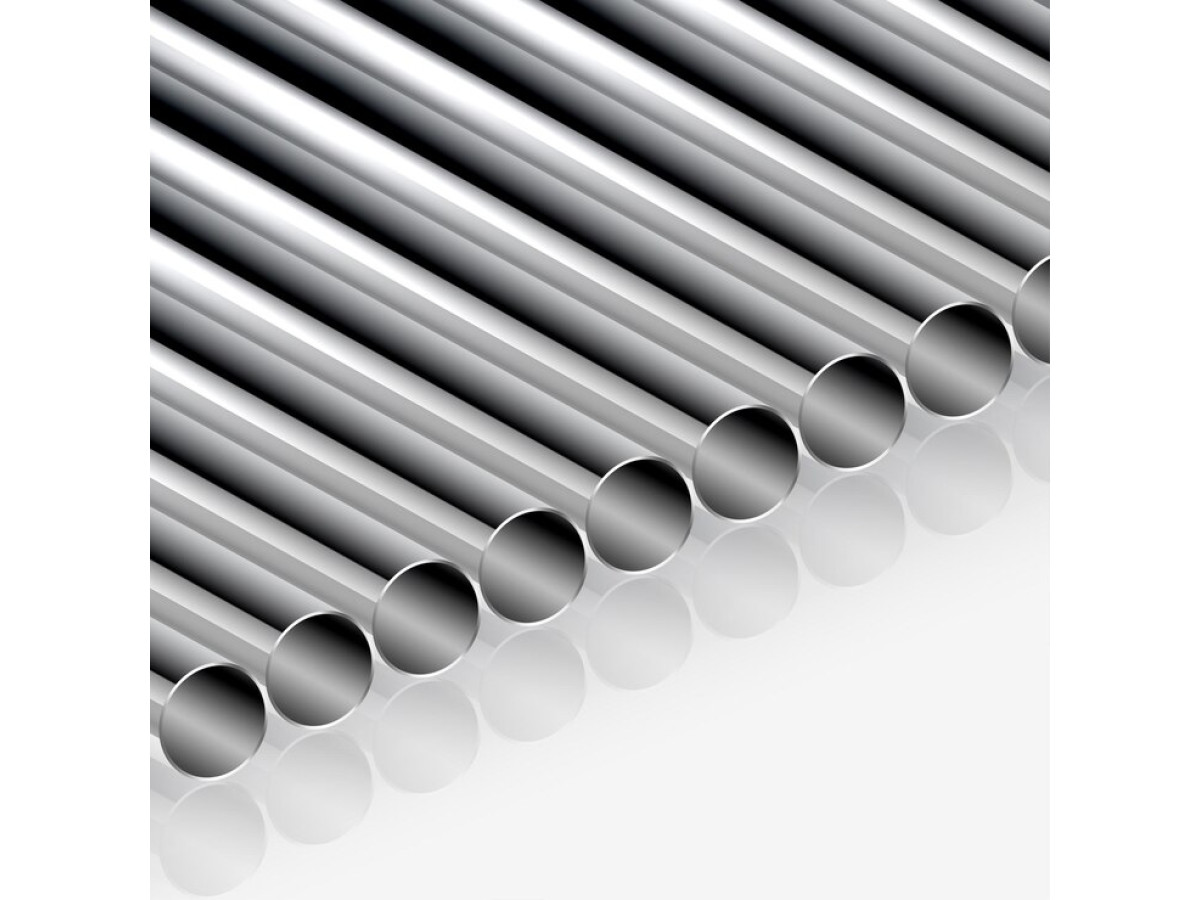Cold Rolled Steel Pipe is a product obtained by cold rolling of a metal sheet or strip. This production method ensures high precision of product geometry, excellent surface quality and corrosion resistance.
Advantages of Cold Rolled Round Pipe
Cold rolled round pipe has several advantages that make it a popular choice for a variety of applications:
- Strength and Durability: Thanks to the cold rolling process, the pipe gains high strength and durability, making it an ideal choice for structures where reliability and stability are required.
- High dimensional accuracy: Thanks to the rolling process, round pipes have high dimensional and geometric accuracy, which simplifies their installation and ensures good connection with other structural elements.
- Good variability and cutability: cold-rolled round pipe is available in a variety of sizes and wall thicknesses, allowing you to choose the optimal parameters for a specific project. It is also easy to cut to desired lengths, making assembly and installation easier.
- Aesthetic Appearance: Round pipes have a smooth surface and aesthetic appearance, making them an attractive design element for both interior and exterior structures.
Overall, cold rolled round tube combines strength, dimensional accuracy, variability and aesthetic appearance, making it a versatile material for a wide range of construction and industrial applications. When choosing a pipe for a specific project, it is worth considering all these advantages and adapting them to your needs.
How to choose the right steel pipe?
When choosing the right steel pipe, there are several key factors to consider to ensure the best fit for your project requirements. Here are some important aspects to pay attention to:
- Type of Steel: There are several different types of steel, each with its own unique properties and characteristics. The choice of steel type depends on the operating conditions of the pipe, the expected load, the aggressiveness of the environment and other factors. For example, heat resistant steel may be required for high temperature applications, while stainless steel may be required for corrosion resistance.
- Dimensions and shape: it is important to determine not only the diameter and wall thickness of the pipe, but also its shape (round, square, rectangular, etc.). The choice of pipe size and shape depends on the specifics of the project, strength requirements and stylistic preferences.
- Purpose: it is necessary to determine for what purposes the pipe will be used - for transporting liquids, gases, for structures, water supply, etc. Each purpose requires certain characteristics of a steel pipe, such as strength, tightness, corrosion resistance and others.
- Budget: The cost of steel pipes can vary significantly depending on their quality, size and other parameters. It is important to stay within the project budget without losing the quality and reliability of the selected material.
- Compliance with standards: When choosing a steel pipe, it is important to ensure that it meets all the necessary standards and quality requirements set for a particular type of product.
Contact a construction and metalworking professional for additional advice and guidance on choosing the right steel pipe for your project. It is important to consider all the above factors and choose the best option that suits your requirements and needs.
Where are steel pipes used?
Steel pipes are widely used in many industries and construction due to their strength, reliability and versatility. Here are some areas where steel pipes are used:
Oil and Gas Industry: The transportation of oil, natural gas and other liquids and gases uses large diameter steel pipes that can withstand high pressures and provide safe transport of flammable materials.
Construction: Steel pipes are used to create various structures, such as building frames, bridges, fences, supports and other infrastructure elements.
Water supply and sewerage: Steel pipes are widely used in water supply and sewerage systems due to their strength, corrosion resistance and long service life.
Heat supply: special types of steel pipes that are resistant to high temperatures are often used to transport hot water and steam in heating and hot water supply systems.
These are just some of the applications for steel pipes. Their versatility and strength make them popular materials in various fields of activity!

